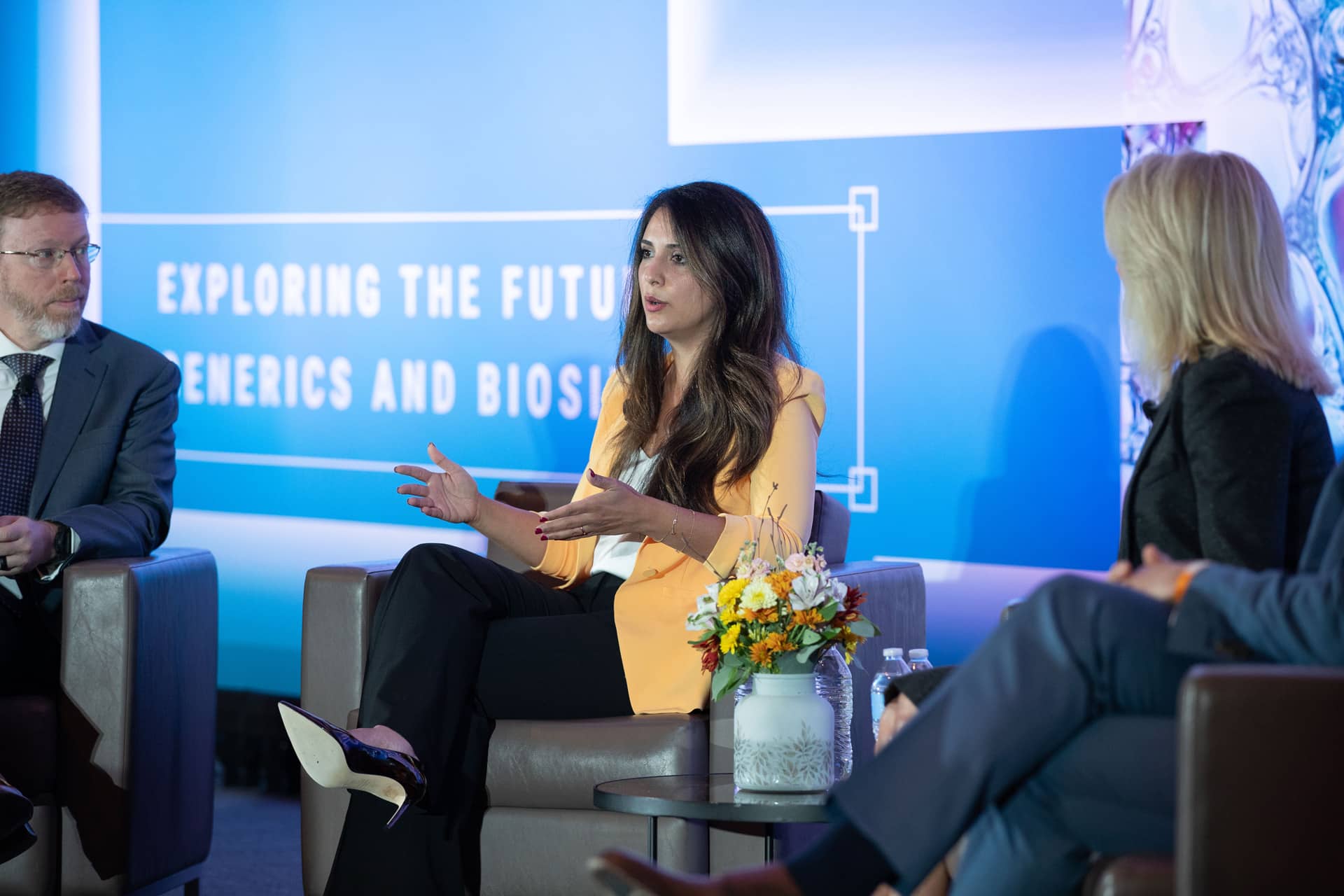The GRx+Biosims 2024 conference was a powerful reminder of both the progress we’ve made in the biosimilars industry and the work that still lies ahead. As I reflect on the important discussions that occurred, I keep coming back to a panel discussion I moderated featuring several industry leaders. The conversation, on the future of a sustainable biosimilars market in the U.S. brought together leaders from Sandoz, Teva Pharmaceuticals, and Biocon Biologics to explore the challenges and opportunities facing our industry. By the end, attendees were left with a sense of urgency and hope—as well as a need for continued collaboration in this space.
Sonia Oskouei from Sandoz highlighted the importance of expanding education and streamlining policies to build a biosimilars market that serves all stakeholders—patients, providers, and the healthcare system at large. She made a compelling case for greater investment in education to clear up misconceptions around biosimilars, particularly around interchangeability. Despite being a regulatory designation, interchangeability remains misunderstood, limiting the full realization of the benefits of biosimilars. Clearing up these misconceptions is crucial if we want biosimilars to reach their full potential in driving down healthcare costs.

Mary Pietryga of Teva Pharmaceuticals emphasized that education isn’t just important—it’s imperative. There’s a gap in awareness among both patients and providers that holds back adoption. Addressing this gap could accelerate the realization of cost savings and accessibility that biosimilars promise. Mary also spoke to the impact of current market dynamics, including how pharmacy benefit managers (PBMs) often favor brand biologics, creating challenges for lower-priced biosimilars. A more competitive PBM landscape could make all the difference.

Joshua Salsi from Biocon Biologics brought our attention to the importance of a strong, sustainable reimbursement model. He pointed out that, to truly make biosimilars a competitive force, the reimbursement framework must balance affordability with maintaining high standards of care. We must foster a market environment where innovation, competition, and affordability coexist.

The role of PBMs, the importance of legislation, and the ongoing need for education were recurring themes. The industry is at an inflection point: either we create an environment that supports biosimilar growth, or we risk stagnation and missed opportunities to bring affordable, high-quality therapies to those who need them most. As we look ahead, we must be committed to collaboration—among manufacturers, policymakers, and stakeholders—to ensure that biosimilars continue to deliver value to patients and the healthcare system.
As Sonia Oskouei eloquently put it, biosimilars are part of the “circle of biological life.” By bringing healthy competition and lowering costs, they make critical biologics accessible, while the savings can be reinvested into the next wave of innovation. This is how we ensure a sustainable future—not just for biosimilars, but for healthcare as a whole. The path forward is one of education, policy reform, and a commitment to the promise of biosimilars. Together, we can make high-quality, affordable healthcare a reality for all.
The Inflation Reduction Act (IRA) was also discussed, and while its intentions to cut costs are commendable, there was concern that it could significantly undermine biosimilar investments. I continue to believe strongly that legislative reforms are essential in supporting the biosimilars market. By bolstering FDA resources and streamlining approval processes, we can help reduce economic pressures and make biosimilars more accessible.
We are so proud of the opportunity to convene industry leaders and stakeholders at events like GRx+Biosims so we can collaborate on strategies to deliver meaningful value and better quality of life for patients. I look forward to seeing more of you at our annual Access! meeting in February.
– Craig Burton, Executive Director, Biosimilars Council and Senior Vice President, Policy & Strategic Alliances, Association for Accessible Medicines
